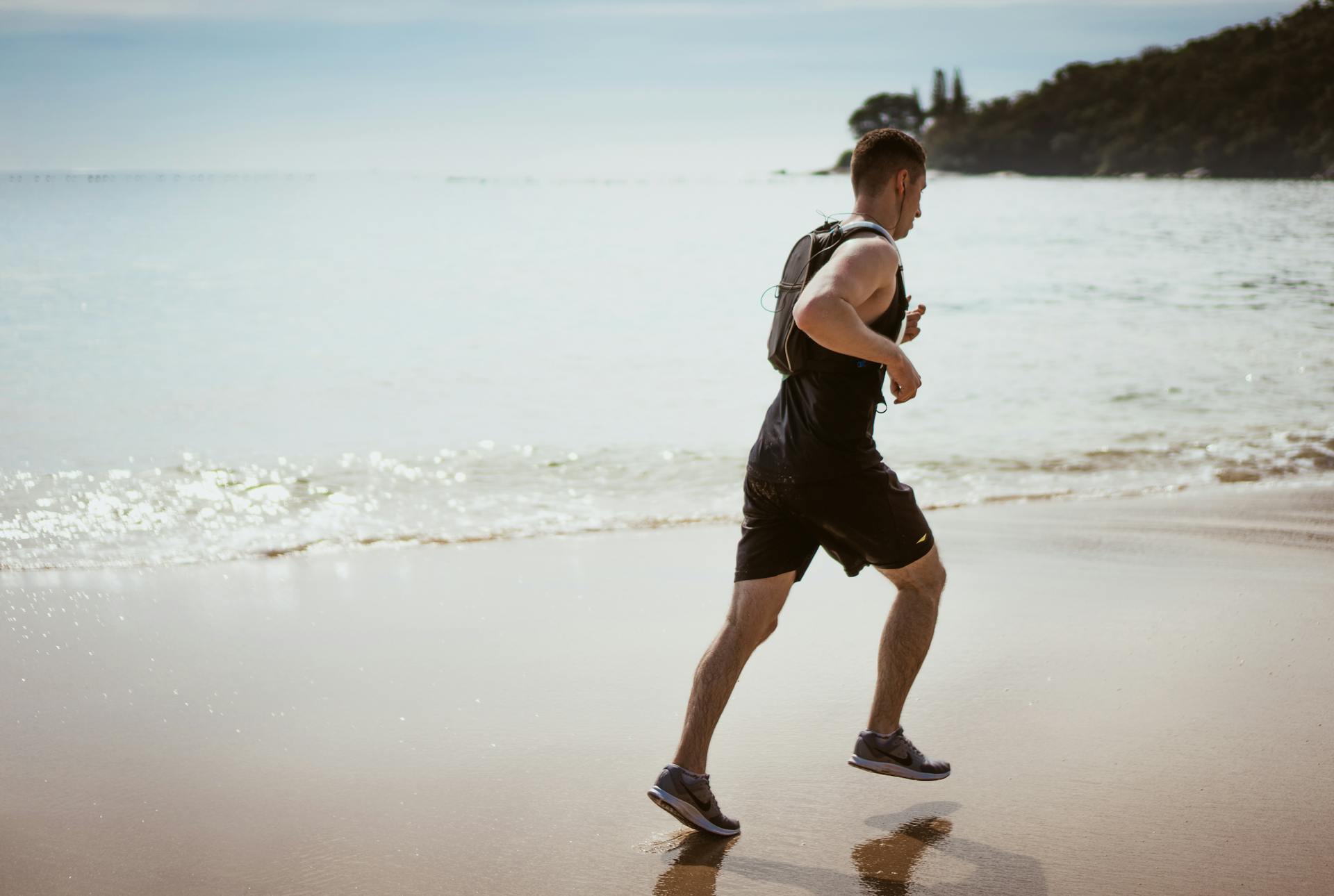
Running hot water through a pressure washer is possible, but it isn’t something that should be done without taking precautions first. A pressure washer works with pressurized water and paired with the heat of hot water; the combination can be damaging and even dangerous. While operating hot water through a pressure washer isn’t impossible, it is important to understand the potential risks before attempting to do so.
When running hot water through a pressure washer, there are three critical things to keep in mind: safety regulations, temperature requirements and approved attachments. Safety regulations will vary from place to place so make sure you’re following all local laws when attempting to use this method. Temperature requirements state that the pump inlet must not exceed 140° F, so if you’re trying to use drastically heated temperatures; this may cause permanent damage to your pump or even harm yourself or others. Another crucial element when using hot water is making sure any pipes or hoses that are attached are able to handle heated waters. Rubber hoses may not be able to withstand temperatures higher than 100-130° F so other materials such as metal should be used in cases like these.
Overall, operating a pressure washer with hot water temperature is possible but it must be done correctly in order for it to effectively work and for you remain safe. Your own local laws need to be taken into account as well as understanding what temperature requirements need to be followed and ensuring any attached parts can handle heated waters before beginning operation of your pressure washer with hot-water access included.
Explore further: How to Train a Husky to Not Run Away?
Is it safe to use hot water in a pressure washer?
In general, using hot water in a pressure washer is safe, but there are a few things to consider before doing so. Hot water is more effective than cold when it comes to cleaning, but the extra heat can damage certain types of materials and surfaces, like wood or paint. It’s also important to be careful when using heated water because it increases the pressure of the washer, so it’s important to read the instruction manual of your particular device carefully and follow safety protocols.
The best way to determine whether hot water is safe to use in your pressure washer is to find out what type of material you are cleaning as well as which temperature setting your device has. Hard surfaces should generally be cleaned with cold water while upholstery and fabrics may require more heat for an adequately thorough clean. Make sure to thoroughly read the instruction manual and user guide before turning on the hot water setting to ensure you know how and what materials are ideal for this process. When in doubt, use cold or warm water as these are generally safe and effective alternatives. Using hot water in a pressure washer is typically safe if you know what type of surface you’re cleaning and have read all safety protocols for your device. Doing some research ahead of time will help minimize any potential damage or risks associated with using high temperatures, allowing for an effective clean without any unexpected surprises.
Readers also liked: What to Wear When Running in Rain?
Is it possible to get hot water out of a pressure washer?
Pressure washers are heavy-duty cleaning tools that can be used to clean cars, pavements, buildings, decks and other surfaces with a powerful stream of water. If you've ever wondered if it's possible to get hot water out of a pressure washer, the answer is yes! Although you won’t be able to just turn on the hot tap and get steaming hot water, most pressure washers come with the ability to heat their own water before spraying it out.
Many standard pressure washers will use a process called thermal unit exchange to heat up cold water coming from a regular garden hose. The temperature inside the pressure washer's tank can be raised using either electricity or gas; this causes the surrounding liquid in the tank to also heat up. Generally speaking, the higher wattage provided by a pressure washer’s heating unit dictates how much hotter it can make its contents.
Additionally, electric or gas-powered boilers can be added as an accessory to some models of pressure washers; these will obviously provide superior heating power and temperatures when compared to their thermal unit exchange counterparts. In addition to using powered boilers for heated cleaning solutions, some high end models are even available with customized settings that allow users to precisely heat their water for optimal cleaning performance—giving you complete control over your pressure washing experience!
In any case, with all these options available in modern pressure washing technology, no longer is cold water an issue when it comes time for heavy cleaning jobs with your device. With its capacity for hot water supply, now more than ever before it’s possible for anyone from professional cleaners to home-owning DIYers alike to make light work of deep clean jobs around the house.
Recommended read: Clean Golf Cart Seats
How hot can the water get when using a pressure washer?
A pressure washer is a tool used to instantly remove dirt, stains, and grime from a variety of surfaces. Pressure washers are popular in various industries, including automotive and construction. Every pressure washer is powered by either electric or gasoline motors that pressurize regular tap water before ejecting it with high levels of force. This high pressure makes them extremely effective at what they do, but can also cause the water to get surprisingly hot.
So how hot can the water get when using a pressure washer? This depends on several factors, such as the power or wattage of the motor and the type of nozzle used. Motors usually produce between 500-2000 watts, so the hotter will be created with a more powerful motor. The nozzle introduces another variable as it dictates how much water is being dispersed and consequently how quickly it heats up. A wide-angle fan nozzle will disperse more water than a smaller nozzle, but dissipates heat faster than an angled-tip nozzle that focuses more of its force into one area. Ultimately, this combination of factors means that an electric pressure washer can produce water temperatures ranging from 30° to over 200° Fahrenheit!
The heat created by these machines allows for greater cleaning power and effectiveness as hot water helps remove stubborn debris more easily than cold water alone. Be sure to wear protective gear when working with high-heat models to avoid any burns and keep yourself safe while cleaning!
Related reading: Water Softener Runs
Does a pressure washer work better with hot or cold water?
Hot water pressure washers are undoubtedly more effective than cold water pressure washers. Hot water is more conducive to removing difficult residues and cleaning more thoroughly. It does this by breaking down the molecules, allowing water to penetrate twice as deep as cold water and causing dirt and grime to dissolve and wipe away far quicker. This reduces the amount of time it takes to clean a surface and increases the quality of the result. However, that’s not to say that cold water can’t get the job done. Cold water pressure washers are just as effective when used for removing simple dirt and grime from certain surfaces, and can be perfect for lighter home use. That being said, if you’re looking for an all-purpose cleaner with an above average output, then hot water pressure washers are definitely the way to go!
In conclusion, while hot and cold water pressure washers can both get the job done, hot ones offer superior cleaning power in quicker times due to their increased temperature levels. They are best suited for heavy-duty cleaning projects involving difficult soils such as oil or grease stains or waxy residue that have accumulated over time on surfaces like floors, driveways or sidewalks. Cold pressure washers should be used in lighter duty home applications where detergents may also be needed but not extreme temperatures.
For more insights, see: Home Run Derby
What is the maximum temperature for water used in a pressure washer?
The maximum temperature for water that is used in a pressure washer is an important factor to consider when using this powerful cleaning tool. The pressure generated from the spray coming from these machines is tremendous, and the water temperatures can reach upwards of two hundred degrees Fahrenheit. Because of this, it’s vital that the water used does not exceed specific maximum temperatures to prevent causing any damage to the pressure washer itself or any surfaces it comes in contact with.
Pressure washers are most commonly operated with cold water as a general safety precaution. According to manufacturers’ guidelines, the maximum temperature of water used should not exceed 140°F or else there is a risk that surfaces or components can be damaged by excess heat. For optimal pressure washing performance, water should be in the range between 140 degrees and 120 degrees Fahrenheit, which is hot enough to clean tough surfaces but still within a reasonable temperature limit. Any hotter temperatures can cause both physical and chemical damage to materials such as paintwork, sealing materials and other delicate surfaces.
Temperature control valves come with some models of pressure washers which feature automatic shut offs when temperatures threaten going above 140°F. Of course if you want to use hot water for more intense cleaning jobs you need to take precautions by wearing appropriate protective clothing such as sturdier gloves and eyewear since the high-pressure jets are much more potent than cold water jets alone. Ultimately if you want to stay safe while operating your pressure washer without causing any unintended damage, the golden rule is absolute: never use temperatures higher than 140°F!
Discover more: Who to Call When You Run Out of Gas?
What are the benefits of using hot water in a pressure washer?
Using hot water in a pressure washer has a range of benefits that can make cleaning quicker, easier and more effective. First, hot water is able to penetrate more easily through items like grease, oil and soil on objects, meaning that surfaces can be washed quicker and with less scrubbing effort. It can even help to dislodge stubborn dirt from items such as driveways or other hard surfaces.
Secondly, hot water helps to break down soap residue better than cold water, resulting in a cleaner finished product when washing items such as cars or other vehicles. Hot water also helps to break down grime within pressure washer parts more effectively than cold water, resulting in more efficient cleaning performance. Finally, using hot water will help considerably in removing odors from materials like carpets or furniture since hot air molecules can reach further into the fibers of fabrics and other materials than their cool counterparts.
Overall, using hot water instead of cold with a pressure washer offers numerous advantages that can greatly enhance the speed and quality of your clean job results. Investing in an appropriate pressure washer for your needs that is able to create hot temperature output should be seen as a great investment for those looking to achieve superior cleaning results with minimal effort.
Explore further: Stop Water
Sources
- https://lettiandco.com/can-you-run-hot-water-through-a-pressure-washer/
- https://innovativebuildingmaterials.com/cleaning/pressure-washing/hotsy-pressure-washer-burner-troubleshooting/
- https://talk.newagtalk.com/forums/thread-view.asp
- https://lovepowertool.com/pressure-washer/run-hot-water/
- https://directpowerdeals.com/can-i-use-hot-water-in-my-pressure-washer/
- https://www.thespruce.com/how-to-use-a-pressure-washer-5224840
- https://cleanup.expert/info/pressure-washers-beginners-guide/
- https://pressurewashr.com/hot-water-vs-cold-water-pressure-washers/
- https://turnupthepressure.com/using-a-pressure-washer-with-lake-water-complete-guide/
- https://www.mitm.com/blog/hot-water-pressure-washer-advantages/
- https://www.washwisely.com/hot-water-vs-cold-water/
- https://toolsowner.com/pressure-washer-water-usage
- https://pressurewasherpoint.com/can-you-run-hot-water-through-a-pressure-washer/
Featured Images: pexels.com


